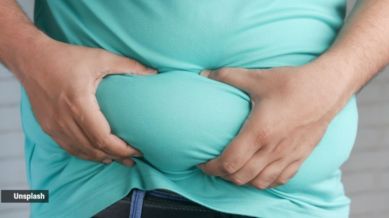India’s rapidly changing eating habits are fueling an alarming spike in diabetes and obesity with at least 21 states and UTs exceeding the national recommendations of less than 5%E (total energy) for added sugar intake while overall protein intake was suboptimal averaging 12% of the daily calories, according to the findings of the survey as part of the study by Indian Council of Medical Research-India Diabetes (ICMR-INDIAB), published in Nature Medicine.
The study also flagged that most Indians get 62% of their calories from carbohydrates.
“No study has looked at a detailed diet in every state of the country and examined the link to non-communicable diseases (NCDs) such as diabetes, hypertension, obesity and dyslipidemia,” Dr V Mohan, senior author of the paper and Chairman, Madras Diabetes Research Foundation, told reporters while presenting the findings from the study published on September 30.
Dr Mohan also stressed that these findings should inspire policy reforms and “help Indians shift towards diets richer in plant-based and dairy proteins, and lower in carbohydrates and saturated fats”.
The cross-sectional survey was conducted in collaboration with Madras Diabetes Research Foundation (MDRF). It included a nationally representative sample of 1,21,077 Indian adults from urban and rural areas of 36 states, UTs and NCT-Delhi.
According to the study — the largest epidemiological study done on diabetes and other metabolic NCDs — had then pointed out 11.4% people in the country have diabetes while another 15.3% were prediabetic.
The study highlighted significant regional differences, high physical inactivity and need for lifestyle interventions.
Story continues below this ad
Now as part of this study, a detailed dietary survey was conducted in every state and the data linked to the occurrence of various NCDs. Dietary data from every fifth participant in the survey was used to characterise India’s dietary profile across regions and examine inter-and intra-regional differences in macronutrient intakes and associated metabolic risk.
Dr R M Anjana, lead author and president, Madras Diabetes Research Foundation, said that their findings show that typical Indian diets are heavy in carbohydrates from white rice or whole wheat flour, and low in quality protein. “Simply switching from white rice to whole wheat or millets is not enough unless total carbohydrate intake decreases and more calories come from plant or dairy proteins,” Dr Anjana said.
Higher calorie intake from carbohydrates was associated with a 14% higher likelihood of newly diagnosed type 2 Diabetes. While there is a huge diversity in nutrient intake across states, most Indians get a staggering 62% of their calories from carbohydrates. Much of this comes from low-quality sources like white rice, milled whole grains and added sugar.
The study showed that refined cereal intake was highest in the Northeast (51.7%E), followed by the South (36%E) and East (31.5%E), largely from white rice (95% of refined cereals).
Story continues below this ad
The Central and Northern regions reported the highest intakes of milled whole grains at 30.9%E and 27.8%E, respectively, compared to 16.2%E nationally, mainly from wheat flour (15%E of 16.2%E). Millet flour contributed minimally (1.4%E).
Millets as a main staple are consumed in only three states: Karnataka, Gujarat and Maharashtra with major types including finger millet (ragi), sorghum (jowar) and pearl millet (bajra).
High sugar intake is concerning. At least 21 states and UTs exceeded the national recommendations of less than 5%E for added sugar intake. While average total fat intake was within national guidelines (≤30% of energy), saturated fat intake exceeded the recommended threshold for metabolic health (less than 7% of energy) in all but four states — Jharkhand, Chhattisgarh, Arunachal Pradesh and Manipur.
Consumption of monounsaturated and omega-3 polyunsaturated fats remain low across regions. Meanwhile all regions except Northeast consumed less protein.
Story continues below this ad
Northeast, in general, consumed the highest protein (13.8%E), particularly Nagaland (18%E), Mizoram (16%E), Manipur and Meghalaya (14%E). Most of it came from plant sources (8.9%E) with little inter-regional differences.
The North had the highest dairy protein intake (3.6%E), while the East (1.2%E) and Northeast (1.1%E) had the lowest. Fermented dairy contributed 0.2%E nationally, with intakes ranging from 0.02%E in the Northeast to 0.5%E in the North.
Most protein in Indian diets comes from plant-based foods like cereals, pulses and legumes (9%E). Intakes of dairy and animal protein varied widely but intakes remained low nationwide at 2%E and 1%E, respectively.
Modelled substitution analysis found that replacing just 5% of daily calories from carbohydrates with plant or dairy proteins significantly lowered risk of developing diabetes and prediabetes.
Story continues below this ad
Importantly, replacing carbs with red meat protein or fats, did not have the same protective effect. While Sudha, joint first author and senior scientist with MDRF, noted that similar metabolic risks were observed across all regions, regardless of the main carbohydrate sources, Dr Mohan also said dietary changes can help reverse current nutrition trends, address widespread protein gaps and improve overall diet quality.
